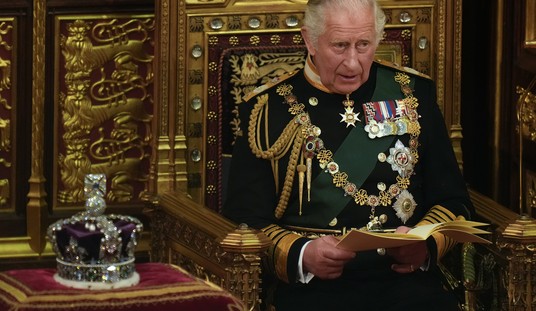What happens if you threw a wave party, and only a low tide showed up? The last midterm poll from Politico/Morning Consult shows Republicans have cut the Democratic lead in the national generic ballot by more than half. A week ago, that poll series showed a D+8 lead, but in the final iteration it’s down to just three points:
According to the poll, 43 percent of registered voters would vote for the Democratic congressional candidate in their district — only slightly more than the 40 percent who would vote for the Republican candidate. Eighteen percent of registered voters are undecided.
Among those who say they are very likely to vote or have already voted, Democrats lead by 4 percentage points, 47 percent to 43 percent. …
The POLITICO/Morning Consult poll was conducted in between those two surveys [WaPo/ABC and NBC/WSJ], from Oct. 30-Nov. 2. Democrats’ 3-point lead among all registered voters is down from an 8-point lead in the previous poll, which was conducted Oct. 25-30.
Bear in mind that this is quite different from the Morning Consult poll from this weekend. That poll showed a D+7, but that came from a three-month rolling average. Why anyone would find a three-month rolling average useful for election modeling is anyone’s guess, but it does at least show that the Democratic lead was substantial during the general-election period.
In the final week, however, it has begun to shrink. Why? In a separate analysis from the same poll, Morning Consult reports that a majority of voters are keeping Donald Trump in mind when casting their votes. Second place? That goes to Brett Kavanaugh, but Nancy Pelosi is far off the pace:
House Minority Leader Nancy Pelosi of California has been a starring figure in much of Republicans’ campaign messaging as the party attempts to keep control of the chamber, but just days before the midterm elections, President Donald Trump — not Pelosi — is at the top of voters’ minds, according to the final Morning Consult/Politico poll released before the midterm elections.
When asked how much they have been thinking about certain political figures when considering how to vote, 13 percent of voters said they were thinking “a lot” about Pelosi when considering their vote, and a 43 percent plurality said they were not thinking about her “at all” – including 53 percent of Republicans. …
But the latest Morning Consult/Politico survey shows that voters are much more likely to think about the GOP’s standard bearer than they are the Democratic leader: 51 percent of voters said they’re thinking “a lot” about Trump, who’s barnstorming the country to defend the party’s majorities in the House and Senate.
Republicans were most likely to say the president was top of mind when considering their vote, with 57 percent saying they have been thinking a lot about Trump. That sentiment was shared by half of Democrats and a 42 percent plurality of independents.
In other words, both parties got what they wanted. Democrats wanted the focus on Donald Trump rather than Nancy Pelosi. Republicans wanted the focus on Trump and Brett Kavanaugh (25% in second place). Trump certainly wanted the focus on him as a means to argue for protecting House Republicans. At least if one goes by the Politico/MC survey, the GOP might wind up benefiting from it. On the other hand, CNN’s latest poll out today shows a D+13 in the generic ballot, although that’s pretty clearly an outlier.
A D+3 lead won’t feed a “blue wave,” and it might not be enough to win enough net seats to take the House majority. Democrats have two wild cards in their hands to deal with that, though — a new redistricting map in Pennsylvania and three dozen GOP retirements in the House. A D+3 might be enough to score 23 seats or more under those circumstances, but it does make these claims a little foolish if the Politico/MC poll is accurate:
New poll results and a surge of younger and first-time voters heading to the polls in the days leading up to Election Day have Democrats considering the possibility that a big blue wave is about to crest over the midterm elections.
For months, polls have showed voters — both Democrats and, especially in recent weeks, Republicans — are rabidly enthusiastic about the midterm elections, excited to show up and cast a ballot.
Now, actual results are proving those polls correct. More than 34 million people have already cast their ballots early or by absentee.
That is a more than 50-percent increase over the total number of early votes cast in the 2014 midterm elections, an unprecedented spike in which voter turnout in some states is rivaling typical turnout levels in a presidential year.
Republicans have kept pace in early voting, though, keeping a slight lead over Democrats the whole way through. Making Trump the center of these elections might end up creating a presidential-year turnout model, which seems more likely to benefit Republicans than a midterm-under-a-GOP-president model would. In less than two days, we’ll see which party won the Trump Referendum bet, but it’s no slam dunk at this point for either.








Join the conversation as a VIP Member